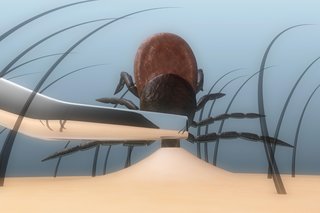
Insect bites or stings are not usually serious and get better in a few days. But sometimes they can become infected or cause a serious allergic reaction.
Bites from some insects can also cause illnesses, such as Lyme disease from ticks, scabies from mites, and malaria from mosquitoes in certain parts of the world.
The main symptoms of an insect bite or sting are:
The lump may look red. It may be more difficult to see on black or brown skin, but you should be able to feel it.
You can often treat an insect bite or sting without seeing a GP.
If anything is left on or in your skin, the first thing you need to do is remove it carefully.

If there's nothing in your skin, or you've removed it, wash your skin with soap and water to help lower the chance of infection.
The bite or sting should get better in a few days. There are some things you can do to ease your symptoms.
put an ice pack wrapped in a cloth or a clean cloth soaked in cold water on the bite or sting for at least 20 minutes, if it's swollen
keep the area raised if you can
take painkillers such as paracetamol or ibuprofen if the sting is painful
use antihistamines to relieve any itching (but do not use antihistamine cream if you had caterpillar hairs on your skin)
use a hydrocortisone cream to reduce itching and swelling
do not scratch the bite or sting, as it could get infected
do not use home remedies such as bicarbonate of soda to treat the bite or sting
A pharmacist can advise you about medicines that can help ease the symptoms of a bite or sting, such as:
They can also provide other treatments if you need them, without you seeing a GP.
You've been bitten or stung by an insect and:
You can call 111 or get help from 111 online.
You or the person who's unwell may also have a rash that's swollen, raised or itchy.
These can be signs of a serious allergic reaction and may need immediate treatment in hospital.